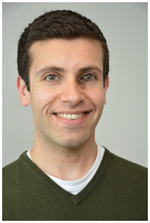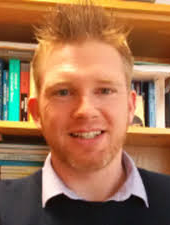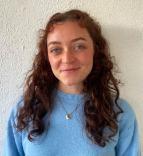-
Courses

Courses
Choosing a course is one of the most important decisions you'll ever make! View our courses and see what our students and lecturers have to say about the courses you are interested in at the links below.
-
University Life

University Life
Each year more than 4,000 choose University of Galway as their University of choice. Find out what life at University of Galway is all about here.
-
About University of Galway

About University of Galway
Since 1845, University of Galway has been sharing the highest quality teaching and research with Ireland and the world. Find out what makes our University so special – from our distinguished history to the latest news and campus developments.
-
Colleges & Schools

Colleges & Schools
University of Galway has earned international recognition as a research-led university with a commitment to top quality teaching across a range of key areas of expertise.
-
Research & Innovation

Research & Innovation
University of Galway’s vibrant research community take on some of the most pressing challenges of our times.
-
Business & Industry

Guiding Breakthrough Research at University of Galway
We explore and facilitate commercial opportunities for the research community at University of Galway, as well as facilitating industry partnership.
-
Alumni & Friends

Alumni & Friends
There are 128,000 University of Galway alumni worldwide. Stay connected to your alumni community! Join our social networks and update your details online.
-
Community Engagement

Community Engagement
At University of Galway, we believe that the best learning takes place when you apply what you learn in a real world context. That's why many of our courses include work placements or community projects.
NICOG Members
Principal Investigators
Prof. Derek Morris - Director of NICOG
 Derek is a Lecturer in Biomedical Science at the University of Galway. He graduated with a B.Sc. in Biotechnology from the National University of Ireland, Galway in 1998. In 2001, he completed his PhD in molecular genetics at the Department of Psychological Medicine, Cardiff University. He subsequently joined the Neuropsychiatric Genetics Research Group in TCD as a research fellow and was awarded a HRB Postdoctoral Career Development Research Fellowship in 2003. In 2006, Dr. Morris was appointed Lecturer in Molecular Psychiatry within the Dept. of Psychiatry in TCD and in 2013 moved to the University of Galway.
Derek is a Lecturer in Biomedical Science at the University of Galway. He graduated with a B.Sc. in Biotechnology from the National University of Ireland, Galway in 1998. In 2001, he completed his PhD in molecular genetics at the Department of Psychological Medicine, Cardiff University. He subsequently joined the Neuropsychiatric Genetics Research Group in TCD as a research fellow and was awarded a HRB Postdoctoral Career Development Research Fellowship in 2003. In 2006, Dr. Morris was appointed Lecturer in Molecular Psychiatry within the Dept. of Psychiatry in TCD and in 2013 moved to the University of Galway.
Prof. Morris’ research interests are the development of novel methods for mapping genes for complex diseases and the application of high-throughput genomics technologies to the detection of risk genes for schizophrenia and bipolar disorder. He has extensive experience of genome-wide association studies and using SFI funding, set up TrinSeq, the first next-generation sequencing lab in Ireland in 2008. He is currently President of the Irish Society of Human Genetics. His contribution to the Cognitive Genetics Group is study design and the management of biosample resources and genetics data used for ongoing studies.
Prof. Colm McDonald - Co-Director of NICOG
 Colm is Professor of Psychiatry at the University of Galway and Consultant Psychiatrist, West Galway Mental Health Services. He also holds the post of visiting Professor at the Institute of Psychiatry, King's College London. He completed his basic clinical training in Dublin and then moved to the Institute of Psychiatry in London, where he completed his clinical and research training and received his PhD.
Colm is Professor of Psychiatry at the University of Galway and Consultant Psychiatrist, West Galway Mental Health Services. He also holds the post of visiting Professor at the Institute of Psychiatry, King's College London. He completed his basic clinical training in Dublin and then moved to the Institute of Psychiatry in London, where he completed his clinical and research training and received his PhD.
He took up his professorial post in 2005 and has developed a clinical research program which focuses on investigating neurobiological and neuroimaging abnormalities associated with major psychotic and affective disorders. He is Director of the Clinical Neuroimaging Laboratory at the University of Galway. His research projects have been supported by the Wellcome Trust, Medical Research Council, Health Research Board, Royal Society, National Alliance for Research on Schizophrenia and Depression, Mental Health Commission. He has authored over 150 original articles published in peer reviewed journals.
Prof. Gary Donohoe
 Gary is a Professor of Psychology at the University of Galway since July 2013. Following the completion of his doctoral training in Clinical Psychology at Trinity College Dublin, Gary undertook a research fellowship in the TCD neuropsychiatric genetics research, where he earned a PhD in Cognitive Genomics and began the cognitive genomics lab. He was appointed an assistant professor in TCD’s school of medicine in 2006, and associate professor in 2009, where he was responsible for the school of medicine psychology program until 2013.
Gary is a Professor of Psychology at the University of Galway since July 2013. Following the completion of his doctoral training in Clinical Psychology at Trinity College Dublin, Gary undertook a research fellowship in the TCD neuropsychiatric genetics research, where he earned a PhD in Cognitive Genomics and began the cognitive genomics lab. He was appointed an assistant professor in TCD’s school of medicine in 2006, and associate professor in 2009, where he was responsible for the school of medicine psychology program until 2013.
Gary’s research focuses on understanding the genetic and neural basis of cognitive deficits associated with psychosis, and the development of therapeutic programs for overcoming these deficits. Gary continues to lead the Cognitive Genetics and Cognitive Therapy (CogGene) group, members of which are based between the school of psychology University of Galway and TCD, where he holds the position of adjunct Professor in the school of medicine and principal investigator in the Trinity College Institute for Neuroscience. Gary also continues to be clinically active in mental health service delivery.
Prof. Dara M. Cannon
 Dara is a Lecturer in Anatomy and research scientist at the University of Galway, Co-Director of the Clinical Neuroimaging Laboratory, Associate Editor of the peer-reviewed academic journal 'Translational Neuroscience' and an organizing member of the 'Irish Diffusion Imaging Group'. Prof. Cannon's primary goal is to aid in improving our understanding of the biological underpinnings of mood and anxiety disorders by applying in vivo neuroimaging techniques to understand the human brain in particular during depression and anxiety.
Dara is a Lecturer in Anatomy and research scientist at the University of Galway, Co-Director of the Clinical Neuroimaging Laboratory, Associate Editor of the peer-reviewed academic journal 'Translational Neuroscience' and an organizing member of the 'Irish Diffusion Imaging Group'. Prof. Cannon's primary goal is to aid in improving our understanding of the biological underpinnings of mood and anxiety disorders by applying in vivo neuroimaging techniques to understand the human brain in particular during depression and anxiety.
Prof. Cannon's experience involves the neuroimaging modalities of positron emission tomography (PET) including mathematical modeling of PET data, and structural and diffusion-weighted (DTI) magnetic resonance imaging (MRI). The application of these technologies is being used to study receptor mapping in the human brain, bipolar disorder, the menstrual cycle, post-partum depression, temporal lobe epilepsy, brain-derived neurotropic factor as well as neurophysiological, clinical, cognitive, genetic and neuroanatomical contributions to mood disorders and psychosis. Validation of imaging findings is pursued using post-mortem microscopic contributions to the diffusion-weighted signal.
Dr. Brian Hallahan, MB, MD
 Brian is a Senior Lecturer in Psychiatry at the University of Galway and Consultant Psychiatrist, West Galway Mental Health Services. He completed his basic clinical training in Galway and then moved to Dublin. He engaged in research in Beaumont Hospital, which resulted in him attaining his MD degree. He subsequently worked in the Institute of Psychiatry in London focusing on neuroimaging research in Autism Spectrum Disorders and returned to Ireland to complete his higher training.
Brian is a Senior Lecturer in Psychiatry at the University of Galway and Consultant Psychiatrist, West Galway Mental Health Services. He completed his basic clinical training in Galway and then moved to Dublin. He engaged in research in Beaumont Hospital, which resulted in him attaining his MD degree. He subsequently worked in the Institute of Psychiatry in London focusing on neuroimaging research in Autism Spectrum Disorders and returned to Ireland to complete his higher training.
Dr. Hallahan worked as a consultant psychiatrist in the Roscommon Mental Health Services before commencing his present post in 2012. His clinical research interests include structural neuroimaging of schizophrenia, bipolar disorder and autism spectrum disorders. He has over 50 publications in peer reviewed journals and the Genio Trust and Stanley Treatment Trials have supported his research projects.
Lecturers
Dr. Ciara Egan
 Ciara is a lecturer in Clinical Neuroscience at the University of Galway. She completed her undergraduate degree in Psychology in Maynooth University, and then went on to obtain her MSc in Foundations of Clinical Neuropsychology, and her PhD in Cognitive Neuroscience from Bangor University. Her research interests focus on core cognitive processes (e.g. language, memory, attention) primarily using electrophysiological techniques, and eye-tracking/pupil dilation. She is also a keen proponent of open science and contributes to the creation of tools for increased methodological quality, replicability and reliability of electrophysiological research.
Ciara is a lecturer in Clinical Neuroscience at the University of Galway. She completed her undergraduate degree in Psychology in Maynooth University, and then went on to obtain her MSc in Foundations of Clinical Neuropsychology, and her PhD in Cognitive Neuroscience from Bangor University. Her research interests focus on core cognitive processes (e.g. language, memory, attention) primarily using electrophysiological techniques, and eye-tracking/pupil dilation. She is also a keen proponent of open science and contributes to the creation of tools for increased methodological quality, replicability and reliability of electrophysiological research.
Dr Tom Burke - Lecturer in Clinical Neuroscience
 Tom is a Clinical Psychologist and Lecturer in Neuropsychology at the University of Galway. Tom received his PhD in Neuropsychology at Trinity College Dublin in 2016, after completing his BSc and MPsychSc in Psychology. He then completed his Clinical Psychology training at University College Dublin in 2019 and became a Visiting Research Fellow in neuropsychology and neuroimaging at the Royal College of Surgeons in Ireland, and an Adjunct Assistant Professor at University College Dublin. For his research he was awarded the PSI Division of Neuropsychology’s Early Career Award in 2015; UCD’s Clinical Psychology Medal in 2019; and the PSI Early Career Award in 2019. Tom’s research interests relate to the cognitive neuropsychology and clinical neuroscience of movement disorders, psychiatric conditions, and neurodegenerative conditions, with particular interest in social cognition and executive function as well as the development of psychological supports for people and their caregivers.
Tom is a Clinical Psychologist and Lecturer in Neuropsychology at the University of Galway. Tom received his PhD in Neuropsychology at Trinity College Dublin in 2016, after completing his BSc and MPsychSc in Psychology. He then completed his Clinical Psychology training at University College Dublin in 2019 and became a Visiting Research Fellow in neuropsychology and neuroimaging at the Royal College of Surgeons in Ireland, and an Adjunct Assistant Professor at University College Dublin. For his research he was awarded the PSI Division of Neuropsychology’s Early Career Award in 2015; UCD’s Clinical Psychology Medal in 2019; and the PSI Early Career Award in 2019. Tom’s research interests relate to the cognitive neuropsychology and clinical neuroscience of movement disorders, psychiatric conditions, and neurodegenerative conditions, with particular interest in social cognition and executive function as well as the development of psychological supports for people and their caregivers.
Current Post Doctoral Researchers
Dr. Maeve Dwan-O'Reilly
 Maeve has been a postdoctoral researcher with the PSYcHE programme since January 2024. Maeve completed her PhD in University College Dublin in collaboration with Jigsaw, the National Centre for Youth Mental Health. Maeve’s PhD explored the role of secondary school staff in supporting and promoting youth mental health, with a particular focus on Jigsaw’s whole school mental health literacy initiative, One Good School. Maeve also has a background in teaching having trained as an English and religion secondary school teacher and having worked for many years as an ESL teacher.
Maeve has been a postdoctoral researcher with the PSYcHE programme since January 2024. Maeve completed her PhD in University College Dublin in collaboration with Jigsaw, the National Centre for Youth Mental Health. Maeve’s PhD explored the role of secondary school staff in supporting and promoting youth mental health, with a particular focus on Jigsaw’s whole school mental health literacy initiative, One Good School. Maeve also has a background in teaching having trained as an English and religion secondary school teacher and having worked for many years as an ESL teacher.
Dr. Emma Corley
 Emma is a Postdoctoral Researcher in Psychiatric Neuroimaging with the Clinical Neuroimaging Laboratory and the Neuroimaging and Cognitive Genomics Centre (NICOG) and is funded by Enigma BD R01 Grant. Her research interests lie within using large-scale genetic and magnetic resonance imaging approaches to advance our understanding of biological and environmental factors in Bipolar Disorder, Major Depression and Schizophrenia.
Emma is a Postdoctoral Researcher in Psychiatric Neuroimaging with the Clinical Neuroimaging Laboratory and the Neuroimaging and Cognitive Genomics Centre (NICOG) and is funded by Enigma BD R01 Grant. Her research interests lie within using large-scale genetic and magnetic resonance imaging approaches to advance our understanding of biological and environmental factors in Bipolar Disorder, Major Depression and Schizophrenia.
Dr. Aodan Laighneach
Aodán graduated with a B.Sc. in Biomedical Science from the University of Galway in November 2019, completing a major in Pharmacology. He started a Ph.D. in the department of Biochemistry in September 2019 under funding from the Irish Research Council’s government of Ireland Postgraduate Scholarship Programme (GOIPG). Aodán’s current research aims to investigate the molecular validity of a dual hit model of schizophrenia based on prenatal infection and social isolation.
Affiliate Members
Prof. John Kelly
 John is currently a Personal Professor of Pharmacology and Therapeutics at the University of Galway. He has over 35 years in pharmacological and toxicological research, 8 of which have been spent in industry. Current areas of research include the mechanisms of action of antidepressants using preclinical models, and the effects of prenatal antidepressant and methamphetamine administration on development in the offspring, as well as developing novel preclinical models of schizophrenia. This research has resulted in over 100 peer-reviewed publications, and the textbook “Principles of CNS drug development: from test tube to patient” published in 2010. He has helped in the development of a range of courses in Pharmacology, Toxicology and Neuroscience, at undergraduate and postgraduate levels, including M.Sc. programmes in Neuropharmacology and Toxicology, B.Sc. in Pharmacology, and undergraduate programmes in Medicine and Nursing. He received the NUI Galway President’s award for teaching excellence in 2011.
John is currently a Personal Professor of Pharmacology and Therapeutics at the University of Galway. He has over 35 years in pharmacological and toxicological research, 8 of which have been spent in industry. Current areas of research include the mechanisms of action of antidepressants using preclinical models, and the effects of prenatal antidepressant and methamphetamine administration on development in the offspring, as well as developing novel preclinical models of schizophrenia. This research has resulted in over 100 peer-reviewed publications, and the textbook “Principles of CNS drug development: from test tube to patient” published in 2010. He has helped in the development of a range of courses in Pharmacology, Toxicology and Neuroscience, at undergraduate and postgraduate levels, including M.Sc. programmes in Neuropharmacology and Toxicology, B.Sc. in Pharmacology, and undergraduate programmes in Medicine and Nursing. He received the NUI Galway President’s award for teaching excellence in 2011.
Dr. Declan McKernan
 Declan is currently a lecturer in the discipline of Pharmacology & Therapeutics and is Course Director for the Msc in Neuropharmacology at the University of Galway. Declan graduated from the University of Limerick with a BSc in Industrial Biochemistry and a PhD in Biochemistry from University College, Cork. Declan then worked as a post-doctoral researcher in the Alimentary Pharmabiotic Centre at UCC before beginning at NUIG in 2011. Declan’s research interests include understanding the regulation of innate immune responses in the gut and the brain with particular focus on neurodegenerative and psychiatric illnesses.
Declan is currently a lecturer in the discipline of Pharmacology & Therapeutics and is Course Director for the Msc in Neuropharmacology at the University of Galway. Declan graduated from the University of Limerick with a BSc in Industrial Biochemistry and a PhD in Biochemistry from University College, Cork. Declan then worked as a post-doctoral researcher in the Alimentary Pharmabiotic Centre at UCC before beginning at NUIG in 2011. Declan’s research interests include understanding the regulation of innate immune responses in the gut and the brain with particular focus on neurodegenerative and psychiatric illnesses.
Dr. David Mothersill
 David is a past lecturer in Clinical Neurosciene at NUI Galway, he graduated from Trinity College in 2014 with a PhD in Neuroimaging Genetics. Following this, he worked as a Postdoctoral Research Fellow on an SFI funded project examining social cognition in schizophrenia, based in Trinity College and NUI Galway. David started his lectureship in NUI Galway in August 2016, and acts as course coordinator on the newly launched MSc in Clinical Neuroscience. David's research is concerned with cognitive function in psychiatric disorders such as schizophrenia and bipolar disorder, how this can be examined at the level of the brain using neuroimaging, and how deficits in cognitive function may be treated. David previously graduated from Trinity College with a BA (Hons) in Zoology and MSc in Neuroscience. He is also a registered member of the Organisation for Human Brain Mapping (OHBM).
David is a past lecturer in Clinical Neurosciene at NUI Galway, he graduated from Trinity College in 2014 with a PhD in Neuroimaging Genetics. Following this, he worked as a Postdoctoral Research Fellow on an SFI funded project examining social cognition in schizophrenia, based in Trinity College and NUI Galway. David started his lectureship in NUI Galway in August 2016, and acts as course coordinator on the newly launched MSc in Clinical Neuroscience. David's research is concerned with cognitive function in psychiatric disorders such as schizophrenia and bipolar disorder, how this can be examined at the level of the brain using neuroimaging, and how deficits in cognitive function may be treated. David previously graduated from Trinity College with a BA (Hons) in Zoology and MSc in Neuroscience. He is also a registered member of the Organisation for Human Brain Mapping (OHBM).
Dr. Pilib Ó Broin
 Pilib is a lecturer in Bioinformatics within the School of Mathematics, Statistics & Applied Mathematics. Prior to his appointment in 2015, he spent six years at the Albert Einstein College of Medicine in New York. Since returning to Galway, he has helped establish two new MSc Programmes in Biomedical/Computational Genomics for which he currently serves as Programme Director. He is a Research Group Leader in the Bioinformatics and Biostatistics Cluster where his lab works on the development of statistical methods and computational tools for the analysis of genomic data, with a particular interest in the functional genomics of neurodevelopment disorders.
Pilib is a lecturer in Bioinformatics within the School of Mathematics, Statistics & Applied Mathematics. Prior to his appointment in 2015, he spent six years at the Albert Einstein College of Medicine in New York. Since returning to Galway, he has helped establish two new MSc Programmes in Biomedical/Computational Genomics for which he currently serves as Programme Director. He is a Research Group Leader in the Bioinformatics and Biostatistics Cluster where his lab works on the development of statistical methods and computational tools for the analysis of genomic data, with a particular interest in the functional genomics of neurodevelopment disorders.
Current PhD Candidates
Alba Madrid Cagigal
 Alba is a PhD researcher and psychologist who is extremely passionate and interested in research. Conducting a study that aimed to determine the relationship between body dissatisfaction and alexithymia in non-clinical populations as part of her undergraduate thesis enabled her to realise the importance of conducting high-quality research. As part of Alba’s MSc in Health Psychology she also conducted a study that aimed to investigate the effect of stress on snacking behaviour among college students. Pursuing her masters and conducting this study has allowed Alba to discover multiple new areas of psychology and develop a range of research skills. Alba’s long-term goal is to advance her research skills and work as a senior researcher in an applied research setting.
Alba is a PhD researcher and psychologist who is extremely passionate and interested in research. Conducting a study that aimed to determine the relationship between body dissatisfaction and alexithymia in non-clinical populations as part of her undergraduate thesis enabled her to realise the importance of conducting high-quality research. As part of Alba’s MSc in Health Psychology she also conducted a study that aimed to investigate the effect of stress on snacking behaviour among college students. Pursuing her masters and conducting this study has allowed Alba to discover multiple new areas of psychology and develop a range of research skills. Alba’s long-term goal is to advance her research skills and work as a senior researcher in an applied research setting.
Mia Casburn
 Mia completed her BA in Psychology & Sociology in 2022 from the University of Limerick and completed her MSc in Clinical Neuroscience at the University of Galway in 2023. Mia began her PhD in psychiatric neuroimaging in September 2023 under the supervision of Prof. Dara Cannon and Prof. Derek Morris. Her PhD research involves investigating the role that neuroimaging derived phenotypes contribute to variations in social participation and occupational engagement in both healthy and psychosis populations. This will further contribute to a larger project aiming to predict social participation and occupational engagement using neuroimaging, genetics and environment in psychosis. Mia’s PhD is fully funded by Taighde Éireann – Research Ireland. She is also an active committee member on the Neuroscience Ireland Early Career Researcher Network (NSI-ECRN).
Mia completed her BA in Psychology & Sociology in 2022 from the University of Limerick and completed her MSc in Clinical Neuroscience at the University of Galway in 2023. Mia began her PhD in psychiatric neuroimaging in September 2023 under the supervision of Prof. Dara Cannon and Prof. Derek Morris. Her PhD research involves investigating the role that neuroimaging derived phenotypes contribute to variations in social participation and occupational engagement in both healthy and psychosis populations. This will further contribute to a larger project aiming to predict social participation and occupational engagement using neuroimaging, genetics and environment in psychosis. Mia’s PhD is fully funded by Taighde Éireann – Research Ireland. She is also an active committee member on the Neuroscience Ireland Early Career Researcher Network (NSI-ECRN).
Evie Doherty
 Evie completed a BSc in Psychology at Dublin City University in 2021. Moving to Galway in 2022, she went on to complete a MSc in Clinical Neuroscience at the University of Galway in 2023. Upon completion, Evie commenced a PhD in psychiatric genomics in the department of Biochemistry under the supervision of Prof. Derek Morris and Prof. Gary Donohoe. Evie’s research focuses on exploring the role of genetics in social participation and occupational engagement and investigating how the complex interplay between genes, environment, and neuroimaging contributes to these functional deficits within a psychosis population. Her research is fully funded by Taighde Éireann – Research Ireland. Evie is also a teaching assistant within the disciplines of Anatomy and Psychology and is an active member of the Early Career Research Network committee, an extension of Neuroscience Ireland (NSI-ECRN).
Evie completed a BSc in Psychology at Dublin City University in 2021. Moving to Galway in 2022, she went on to complete a MSc in Clinical Neuroscience at the University of Galway in 2023. Upon completion, Evie commenced a PhD in psychiatric genomics in the department of Biochemistry under the supervision of Prof. Derek Morris and Prof. Gary Donohoe. Evie’s research focuses on exploring the role of genetics in social participation and occupational engagement and investigating how the complex interplay between genes, environment, and neuroimaging contributes to these functional deficits within a psychosis population. Her research is fully funded by Taighde Éireann – Research Ireland. Evie is also a teaching assistant within the disciplines of Anatomy and Psychology and is an active member of the Early Career Research Network committee, an extension of Neuroscience Ireland (NSI-ECRN).
Andrea Fernandez
 Andrea, originally from Venezuela, has been living in Ireland for the past 10 years. She earned her BA in Psychology from the National College of Ireland in Dublin, followed by an MSc in Clinical Neuroscience from Galway University. Currently, she works as a research assistant at the Clinical Neuroimaging Laboratory contributing to the RESIST-D project, which explores the reward-stress interaction as a neural basis for resilience and vulnerability in mental health, under the supervision of Prof. Dara M. Cannon. Andrea is also a committee member of the Neuroscience Ireland - Early Career Research Network. Her research interests focus on the neural mechanisms underlying mental health and mood disorders, with a particular emphasis on neuroimaging techniques.
Andrea, originally from Venezuela, has been living in Ireland for the past 10 years. She earned her BA in Psychology from the National College of Ireland in Dublin, followed by an MSc in Clinical Neuroscience from Galway University. Currently, she works as a research assistant at the Clinical Neuroimaging Laboratory contributing to the RESIST-D project, which explores the reward-stress interaction as a neural basis for resilience and vulnerability in mental health, under the supervision of Prof. Dara M. Cannon. Andrea is also a committee member of the Neuroscience Ireland - Early Career Research Network. Her research interests focus on the neural mechanisms underlying mental health and mood disorders, with a particular emphasis on neuroimaging techniques.
Cerena Miravalles
 Cerena completed her BA degree in Psychology at Seattle University (USA) in 2017. She further went on to complete her MSc degree in Clinical Neuroscience at the National University of Ireland, Galway in 2018. Prior to starting her PhD, Cerena worked as a Research Assistant in the Clinical Neuroimaging Lab and in the Clinical Research Facility in University Hospital Galway coordinating and managing the Psychiatry studies. She commenced her PhD in November 2019 in the Dept. of Psychiatry (NUIG) with her research investigating the relationship between the muscarinic-cholinergic system and mood and cognition in bipolar disorder.
Cerena completed her BA degree in Psychology at Seattle University (USA) in 2017. She further went on to complete her MSc degree in Clinical Neuroscience at the National University of Ireland, Galway in 2018. Prior to starting her PhD, Cerena worked as a Research Assistant in the Clinical Neuroimaging Lab and in the Clinical Research Facility in University Hospital Galway coordinating and managing the Psychiatry studies. She commenced her PhD in November 2019 in the Dept. of Psychiatry (NUIG) with her research investigating the relationship between the muscarinic-cholinergic system and mood and cognition in bipolar disorder.
Dearbhla Ní Chúláin
 Dearbhla holds a BA (Hons) in Social Care and an MA in Social Work, both from the University of Galway. She spent six years working as a social care worker in disability services before becoming a professionally qualified social worker. In her social work roles, she gained experience across inpatient and community mental health teams and child protection. In November 2022, she began her PhD under the supervision of Professors Colm McDonald and Agnes Higgins in the College of Medicine, Nursing, and Health Sciences at the University of Galway. Her research focuses on developing a psychosocial intervention for individuals admitted involuntarily with psychosis, employing participatory methods to ensure it is grounded in lived experience. Her PhD is part of the PSI-STAR (Psychosis Ireland Structured Training and Research Programme), which is funded by the Health Research Board (HRB); she is also a SPHeRE scholar.
Dearbhla holds a BA (Hons) in Social Care and an MA in Social Work, both from the University of Galway. She spent six years working as a social care worker in disability services before becoming a professionally qualified social worker. In her social work roles, she gained experience across inpatient and community mental health teams and child protection. In November 2022, she began her PhD under the supervision of Professors Colm McDonald and Agnes Higgins in the College of Medicine, Nursing, and Health Sciences at the University of Galway. Her research focuses on developing a psychosocial intervention for individuals admitted involuntarily with psychosis, employing participatory methods to ensure it is grounded in lived experience. Her PhD is part of the PSI-STAR (Psychosis Ireland Structured Training and Research Programme), which is funded by the Health Research Board (HRB); she is also a SPHeRE scholar.
Jaqueline Quirke
 Jacqueline completed her BSc in Psychology at Santa Clara University in 2017 (USA). In 2019, she moved to Ireland and completed the MSc in Clinical Neuroscience at NUI Galway in 2020. After working in the Clinical Neuroimaging Laboratory as a teaching and research assistant for a year, she commenced her PhD in Anatomy in September 2021. Jacqueline’s research investigates how altered lateralization of processing and related network differences contribute to attentional and emotional deficits in bipolar disorder using fMRI and cognitive methods. Her research is supported by the Hardiman Research Scholarship at the National University of Ireland, Galway.
Jacqueline completed her BSc in Psychology at Santa Clara University in 2017 (USA). In 2019, she moved to Ireland and completed the MSc in Clinical Neuroscience at NUI Galway in 2020. After working in the Clinical Neuroimaging Laboratory as a teaching and research assistant for a year, she commenced her PhD in Anatomy in September 2021. Jacqueline’s research investigates how altered lateralization of processing and related network differences contribute to attentional and emotional deficits in bipolar disorder using fMRI and cognitive methods. Her research is supported by the Hardiman Research Scholarship at the National University of Ireland, Galway.
Saahithh Redddi Patlola
 Saahithh has a background in Pharmacy and completed his Masters in Toxicology from the University of Galway in 2019. He then worked as a research assistant in the iRELATE project until 2021 and is currently in his PhD with Assoc. Prof. Declan McKernan and Prof. Gary Donohoe, investigating the relationship between Toll-like receptors and cognition in schizophrenia. His research interests include neuropharmacology, immunology, cell signalling and immunogenetics.
Saahithh has a background in Pharmacy and completed his Masters in Toxicology from the University of Galway in 2019. He then worked as a research assistant in the iRELATE project until 2021 and is currently in his PhD with Assoc. Prof. Declan McKernan and Prof. Gary Donohoe, investigating the relationship between Toll-like receptors and cognition in schizophrenia. His research interests include neuropharmacology, immunology, cell signalling and immunogenetics.
Aoife Warren
 Aoife completed the BSc in Biomedical Science majoring in Pharmacology in the University of Galway in 2021. She then went on to complete the MSc in Clinical Neuroscience in 2022 before beginning a PhD in the School of Psychology, supervised by Prof. Gary Donohoe and Dr. David Mothersill in Autumn 2022. Aoife’s current research involves investigating the association between functional brain neuroimaging and cognition in schizophrenia using the iRelate dataset. She also is currently involved as a teaching assistant in the MSc in Clinical Neuroscience. Aoife’s research interests include the application of advanced statistical modelling and novel data science techniques in the exploration and analysis of clinical data, incorporating a variety of neuroimaging, cognitive and psychological variables
Aoife completed the BSc in Biomedical Science majoring in Pharmacology in the University of Galway in 2021. She then went on to complete the MSc in Clinical Neuroscience in 2022 before beginning a PhD in the School of Psychology, supervised by Prof. Gary Donohoe and Dr. David Mothersill in Autumn 2022. Aoife’s current research involves investigating the association between functional brain neuroimaging and cognition in schizophrenia using the iRelate dataset. She also is currently involved as a teaching assistant in the MSc in Clinical Neuroscience. Aoife’s research interests include the application of advanced statistical modelling and novel data science techniques in the exploration and analysis of clinical data, incorporating a variety of neuroimaging, cognitive and psychological variables
Current Research Assistants
Emily Barrett
 Emily is a Research Assistant on the ‘SOCIAbLE’ project, which investigates a VR-based intervention to improve social cognition in adults who have experienced early life adversity. Emily graduated with a BA in Denominated Psychology from the University of Galway in 2021 and completed her MSc in Clinical Health Psychology at Queen’s University Belfast in 2023. Emily previously worked as a support worker with the Brothers of Charity, supporting children and young people with intellectual disabilities and comorbidities. She volunteers as a support worker with Bodywhys, the Eating Disorder Association of Ireland. Emily’s research interests include the cognitive and clinical aspects of childhood trauma, mood disorders, eating disorders, and neurodegenerative diseases, with a focus on developing and evaluating interventions to improve psychosocial functioning.
Emily is a Research Assistant on the ‘SOCIAbLE’ project, which investigates a VR-based intervention to improve social cognition in adults who have experienced early life adversity. Emily graduated with a BA in Denominated Psychology from the University of Galway in 2021 and completed her MSc in Clinical Health Psychology at Queen’s University Belfast in 2023. Emily previously worked as a support worker with the Brothers of Charity, supporting children and young people with intellectual disabilities and comorbidities. She volunteers as a support worker with Bodywhys, the Eating Disorder Association of Ireland. Emily’s research interests include the cognitive and clinical aspects of childhood trauma, mood disorders, eating disorders, and neurodegenerative diseases, with a focus on developing and evaluating interventions to improve psychosocial functioning.
Sophie Harrington
 Sophie received her BA in Denominated Psychology (International) with a year spent in Padova. She completed her MSc in Clinical Neuroscience at the University of Galway. In her spare time, she is also a crisis volunteer for Text About It, a National Action Panel member for spunout, and has worked in collaboration with UCD on research surrounding the My World Survey 3. She has previously worked as a Teaching Assistant in Psychology and as a Care Assistant for the Brothers of Charity Services, supporting children with intellectual disabilities and complex medical needs. Her main interests lie in youth mental health, digital mental health services, sleep disorders, and improving the implementation of CAMHS services for young people.
Sophie received her BA in Denominated Psychology (International) with a year spent in Padova. She completed her MSc in Clinical Neuroscience at the University of Galway. In her spare time, she is also a crisis volunteer for Text About It, a National Action Panel member for spunout, and has worked in collaboration with UCD on research surrounding the My World Survey 3. She has previously worked as a Teaching Assistant in Psychology and as a Care Assistant for the Brothers of Charity Services, supporting children with intellectual disabilities and complex medical needs. Her main interests lie in youth mental health, digital mental health services, sleep disorders, and improving the implementation of CAMHS services for young people.
Cathal Ó Curraoin
 Cathal is a research assistant on the SOCIABLE project, which aims to identify whether a Virtual Reality-based intervention can help improve social cognition in adults who have had adverse childhood experiences. Cathal previously worked on the iRelate project which examined the impact of genes, early life experiences and the immune system on the brain. As part of his H Dip in Psychology, Cathal carried out a study of childhood trauma and psychological distress in young adults. Cathal has a background in accountancy and worked as a lecturer for many years in the University of Galway.
Cathal is a research assistant on the SOCIABLE project, which aims to identify whether a Virtual Reality-based intervention can help improve social cognition in adults who have had adverse childhood experiences. Cathal previously worked on the iRelate project which examined the impact of genes, early life experiences and the immune system on the brain. As part of his H Dip in Psychology, Cathal carried out a study of childhood trauma and psychological distress in young adults. Cathal has a background in accountancy and worked as a lecturer for many years in the University of Galway.
Anna O'Mahony Sinnott
 Anna received her BA in Psychological Studies, and Social and Political Science, and her HDip in Psychology (Conversion) from the University of Galway. She then went on to complete the MSc in Clinical Neuroscience from the University of Galway in 2023. Anna was a moderator and mental health worker for online organisation Turn2Me.ie for three years, working with adults and young people aged 12+. In 2024, Anna took up the post as Assistant Psychologist/Research Assistant in the University of Galway’s Student Counselling and Wellbeing Service, and the School of Psychology. Anna’s previous research has focused on social cognition, and the role of microstructural connectivity of white matter tracts in schizophrenia. Her primary interests are in understanding the etiology and neural basis of mental health disorders, examining social cognition and functioning, and the development of novel mental health interventions and therapies.
Anna received her BA in Psychological Studies, and Social and Political Science, and her HDip in Psychology (Conversion) from the University of Galway. She then went on to complete the MSc in Clinical Neuroscience from the University of Galway in 2023. Anna was a moderator and mental health worker for online organisation Turn2Me.ie for three years, working with adults and young people aged 12+. In 2024, Anna took up the post as Assistant Psychologist/Research Assistant in the University of Galway’s Student Counselling and Wellbeing Service, and the School of Psychology. Anna’s previous research has focused on social cognition, and the role of microstructural connectivity of white matter tracts in schizophrenia. Her primary interests are in understanding the etiology and neural basis of mental health disorders, examining social cognition and functioning, and the development of novel mental health interventions and therapies.
Sophie Mahon
 Sophie received her BA in Psychological Studies and Criminology and her HDip in Psychology (conversion) from Maynooth University. She then completed the MSc in Health Psychology degree in the University of Galway. Sophie worked with the outpatient team in St James’s Hospital in Dublin, delivering therapies and support to adults facing various mental health challenges. Her primary interests lie in the intricate dynamics of childhood development, the profound effects of trauma, and how these factors can influence both physical and mental health throughout an individual's life. She is particularly passionate about understanding how early experiences shape psychological resilience and vulnerability, and she seeks to explore effective interventions and support strategies to mitigate long-term impacts.
Sophie received her BA in Psychological Studies and Criminology and her HDip in Psychology (conversion) from Maynooth University. She then completed the MSc in Health Psychology degree in the University of Galway. Sophie worked with the outpatient team in St James’s Hospital in Dublin, delivering therapies and support to adults facing various mental health challenges. Her primary interests lie in the intricate dynamics of childhood development, the profound effects of trauma, and how these factors can influence both physical and mental health throughout an individual's life. She is particularly passionate about understanding how early experiences shape psychological resilience and vulnerability, and she seeks to explore effective interventions and support strategies to mitigate long-term impacts.
Past Lecturers
- Dr. Laurena Holleran
Past PhD Students
| Dr Megan Cowman | Dr Shane O'Connell | Dr Genevieve McPhilemy |
|---|---|---|
| Dr Leila Nabulsi | Dr Theophilus Akudjedu | Dr Joanne Kenney |
| Dr Stefani O'Donoghue | Srinath Ambati | Dr Rachael Dillion |
| Dr Sinéad Kelly | Dr Donna Cosgrove | Dr David Mothersill |
| Dr Craig Chigwedere | Dr Jessica Holland | Dr. Guilia Tronchin |
| Dr. Laura Costello | Dr. Fiona Martyn |
Past Post Doctoral Researchers
| Dr Emma Frawley | Dr Sinead King | Dr Joan Fitzgerald |
|---|---|---|
| Dr Pablo Najt | Dr Niall Colgan | Dr April Hargreaves |
| Dr JingJing Zhao | Dr Emma Rose | Dr Maria Dauvermann |
| Dr Laura Whitton | Dr Karolina Rokita | Dr Lieve Desbonnet |
Past Research Assistants
| Christina Gleeson | Kyra Renaud | James Lyons |
| Emmet Godfrey | Talissa Walsh | Nicole Sylver |
| Ruan Kane | Akil Konkoth | Áine McNicolas |















